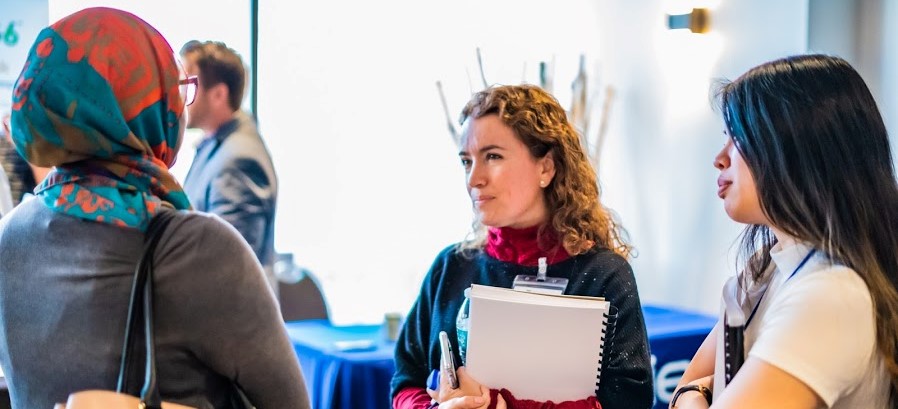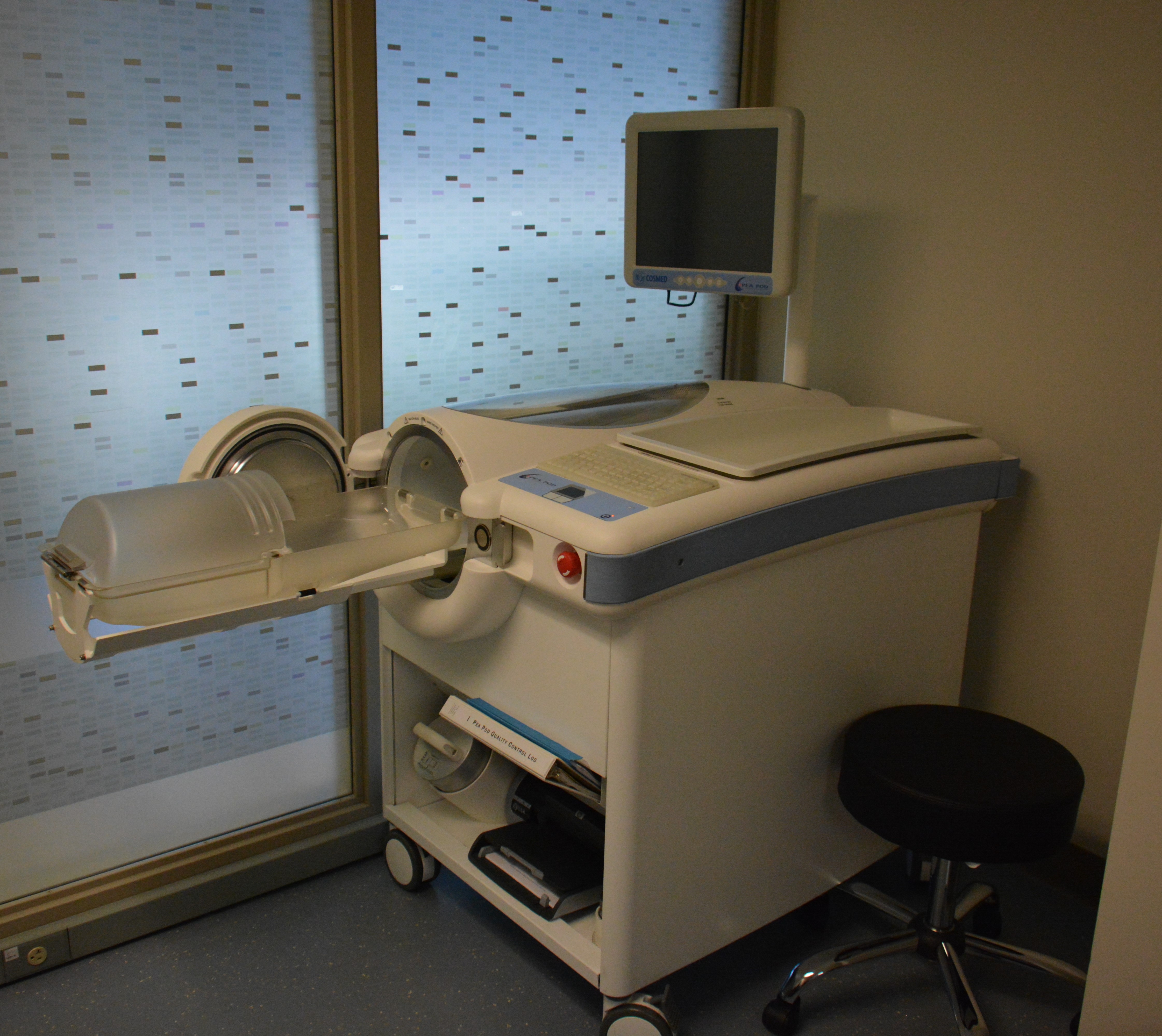
Fellows will develop skills in research within Pediatric Endocrinology using a wide array of resources. Fellows can meet research mentors within and outside the section and can choose a clinical or basic science research project based on their interest. Educational research or a well-designed quality improvement project for fellows who have strong clinical interest can also be accepted as scholarly activity. Through the guidance of their mentor and Scholarship Oversight Committee, fellows have the opportunity to build hypothesis driven research and design a project to answer their question. It is expected that all fellows will have a first author manuscript submitted, or ready to be submitted, for publication at the end of their fellowship.
Our fellows have developed proposals and received funding from local and national agencies, including the Endocrine Fellows Foundation, the Pediatric Endocrine Society, and the Department of Pediatrics. Our fellows have also presented abstracts at local, regional, and national meetings and have published case studies and their research work in peer-reviewed journals.
Scholarly Activity
Fellows' scholarly accomplishments are supervised and evaluated by their research mentor, their Scholarship Oversight Committee (SOC), and the Program Director. The SOC consists of, at minimum, two section faculty members and a faculty member from outside the section. Fellows have their first SOC meeting by the end of their first year. Future SOC meetings are based on committee recommendations.
Facilities
The program brings together some our most experienced and successful endocrinology faculty with a mission to examine causes, prevention, and treatments of childhood diabetes and related metabolic problems. We have state-of-the-art laboratories and technology to become a leading national research program in pediatric diabetes and metabolism. The Children's Metabolic Research Institute is funded with a large investment of more than $11 million dollars from the Children's Hospital Foundation, which has focused their considerable resources to research pediatric diabetes and its related comorbidities.
There are separate research laboratories designed for human clinical research, cell culture, biospecimen processing and storage, and biochemical and molecular analyses.
The clinical research spaces are designed for measuring body composition, metabolic and vascular function, exercise fitness, and for conducting clinical trials and metabolic studies. For clinical trials and metabolic studies there are rooms available for phlebotomy, infusions, oral glucose tolerance tests, and related activities.
We have several instruments for measuring body composition in infants, children, and adults, including dual X-ray absorptiometry (GE iDXA), bioelectrical impedance (Tanita BD-418), and air displacement plethysmography (BodPod, PeaPod).

For exercise testing and training we have treadmills with cushioned decks, stationary bicycles, a handcycle, and other equipment. We record exercise sessions and physical activity with heart rate and step activity monitors, respectively. We have indirect calorimetry systems (ParvoMedics, MedGraphics) to measure resting metabolic rate using a flow-through canopy system, energy expenditure during exercise, and aerobic fitness (VO2peak) during graded exercise tests.
For vascular function we measure arterial pulse wave velocity using the SphygmoCor XCEL instrument and arterial compliance with the HDI/Pulsewave CR-2000 instrument. Endothelial function can be measured via reactive hyperemic response using the Endo-PAT instrument.
The cell culture laboratory is equipped with a laminar flow hood and incubators growing cells and a preparative area for isolation of cells from tissue and microscopic observation. There is also a cryopreservation freezer for storing cells.
The biochemistry/molecular analysis laboratory has many tools for processing cells, tissue, and blood biospecimens. Equipment available includes an HbA1c analyzer, a microplate reader for measuring plasma/serum hormones, cytokines and lipids, a real-time PCR system, and electrophoresis, and blotting and imaging equipment for Western blots. The lab includes refrigerated centrifuges, cold storage, freezer storage, deionized water source, and many other pieces of accessory equipment.
Other Research Opportunities and Facilities
Pediatric Department Research Support
OU Health Harold Hamm Diabetes Center
Children's Hospital Foundation
Research Mentors and Interests
Previous Grant Funding Obtained by Fellows
2021
- Dr. Ankur Rughani, "The Impact of Maternal Diabetes on miRNA 146b in Fetal Tissue," was awarded the Endocrine Fellows Foundation Grant grant for $5,000.
2020
- Dr. Diana Hellman, "Serum micro-RNA 155 as a Biomarker of NAFLD in Children," was awarded the Rising Star award from the Pediatric Endocrinology Society for $2,000.
2018
- Dr. Kruti Shaw, "Effect of Gestational Diabetes Mellitus on microRNA Expression," was awarded the Endocrine Fellows Foundation Grant and the Children's Hospital Foundation Fellows Research Award for a total of $15,000.
2017
- Dr. Jonathan Meyer, "Measuring the Effect of Maternal DM on Fetal Cord Blood Vascular Endothelial Growth Factor (VEGF)," was awarded the Endocrine Fellows Foundation Grant and the Children's Hospital Foundation Fellows Research Award for a total of $75,000.
2015
- Dr. Eva Kalaitzoglou, "Obesity and Osteoarthritis - Involvement of the Innate Immune System," was awarded the OU Children's Hospital Foundation Fellows Research Grant.
2014
- Dr. Paul Dasari, "Continuous Glucose Monitoring in Low Physical Activity Youth with and without Type 2 Diabetes," was awarded the Department of Pediatrics SL Young Grant and Medtronic Grant for a total of $150,000.
2013
- Dr. Monica Marin, "Obesity in Children is Associated with Increased Oxidative Stress and Inflammation," was awarded the Department of Pediatrics Chairman's Award and Marilyn Fishman Grant for Diabetes Research from the Endocrine Fellows Foundation for $70,000.
2013
- Dr. Anu Vishwanath, "Influence of Maternal Diabetes Mellitus on Human Umbilical Vein Endothelial Cell microRNA," was awarded the Marilyn Fishman Grant for Diabetes Research from the Endocrine Fellows Foundation for $15,000.
2012
- Dr. Anu Vishwanath, "Influence of Maternal Diabetes Mellitus on Human Umbilical Vein Endothelial Cell microRNA," was awarded the Marilyn Fishman Grant for Diabetes Research from the Endocrine Fellows Foundation for $15,000.
- Dr. Ashwani Millappa, "Effect of Maternal Diabetes Mellitus on Insulin-like Growth Factor-I Receptor Expression in Human Umbilical Vein Endothelial Cells."
2011
- Dr. Jeanie Tryggestad, "Vascular Compliance and Endothelial Function in Children with Obesity and Type 2 Diabetes," was awarded the Marilyn Fishman Grant for Diabetes Research from the Endocrine Fellows Foundation and the Lawson Wilkins Pediatric Endocrine Fellowship Grant for a total of $65,000.
2008
- Dr. Sowmya Krishnan, "Impact of Type 1 Diabetes and Being Overweight on Cardiovascular Risk Factor and Markers in Children," was awarded the NovoNordisk Grant for $68,000.
2015
- Dr. Louis Casas, "Treatment of Impaired Glucose Tolerance in Patients with Cystic Fibrosis."